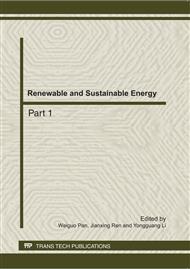p.3691
p.3695
p.3699
p.3706
p.3710
p.3716
p.3724
p.3728
p.3732
Catalytic Hydrogenation and Hydrocracking of PRO Residual Oil over USY-Zeolite Catalyst
Abstract:
The effect of different contents of Ni loaded on USY-zeolite catalyst and the effect of temperature and hydrogen partial pressure on hydrocracking behavior of PRO residual oil were studied. It was observed that the content of Ni showed a great effect on monocyclic selectivity. The overall conversion decreased at first and then increased with reaction temperature, while the impacts of temperature on monocyclic selectivity varied with hydrogen partial pressure. In addition, the overall conversion increased with the increase of hydrogen partial pressure and the maximum overall conversion was 45.4% at 440°C. The increasing of hydrogen partial pressure is slightly helpful to monocyclic selectivity.
Info:
Periodical:
Pages:
3710-3715
Citation:
Online since:
October 2011
Authors:
Price:
Сopyright:
© 2012 Trans Tech Publications Ltd. All Rights Reserved
Share:
Citation:


